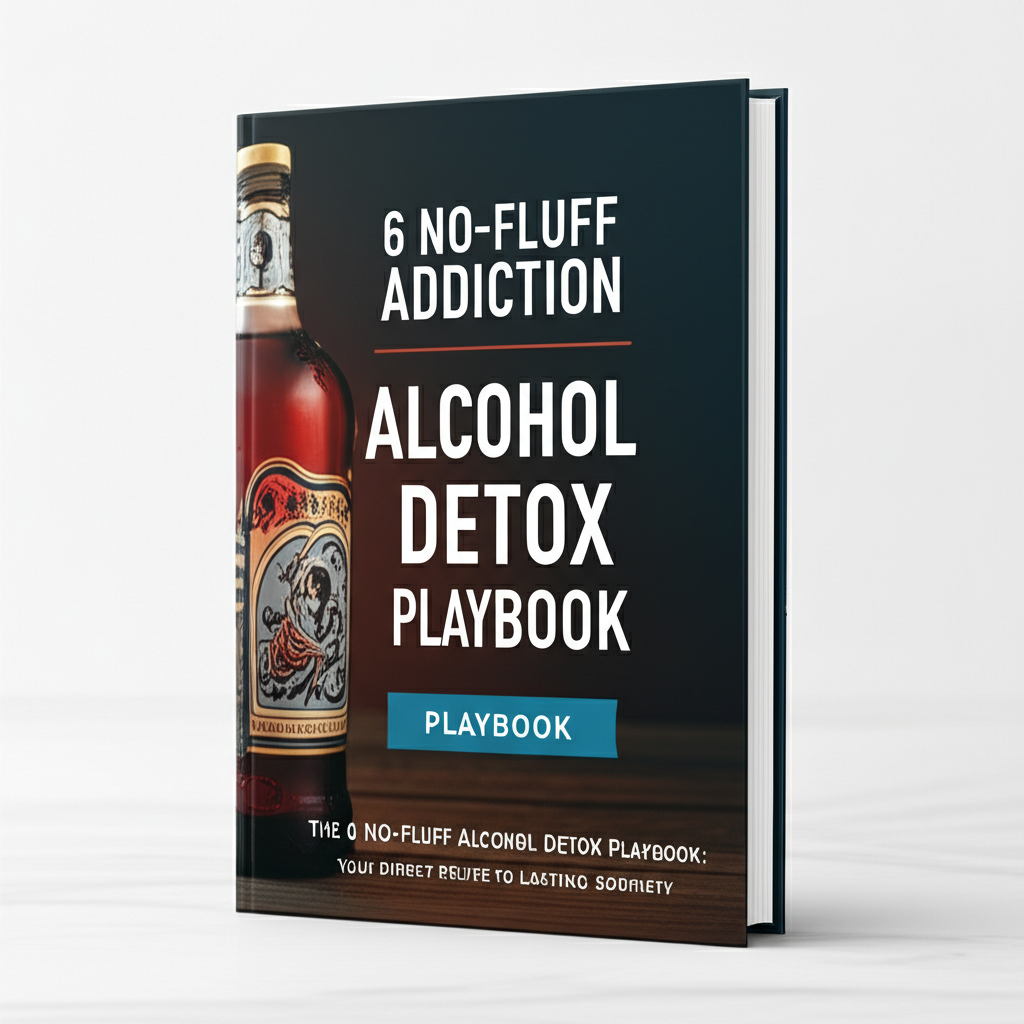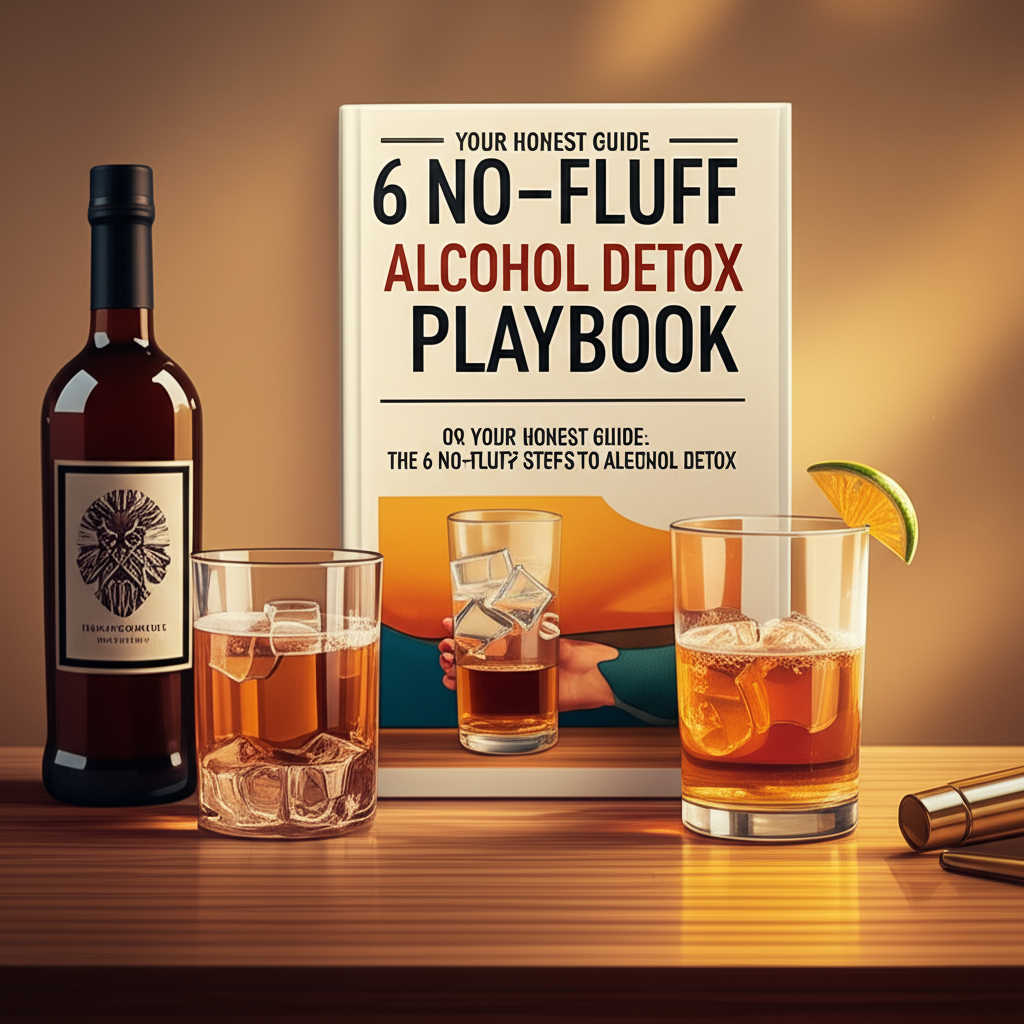The decision to quit drinking alcohol is often the most courageous step a person can take on their journey to recovery. It’s a profound commitment to reclaim one’s life, health, and well-being. However, for those with a physical dependence on alcohol, the initial phase – alcohol detoxification – can feel like facing a daunting mountain. The body, accustomed to the presence of alcohol, rebels fiercely when it’s removed, leading to a spectrum of uncomfortable, and sometimes life-threatening, withdrawal symptoms.
This is where structured detox frameworks become not just helpful, but absolutely critical. Attempting to detox from alcohol alone, especially for individuals with moderate to severe alcohol use disorder (AUD), can be incredibly dangerous. Medical supervision and a well-thought-out plan are paramount for ensuring safety, managing withdrawal symptoms effectively, and laying a stable foundation for long-term sobriety.
This comprehensive guide will illuminate the four best addiction alcohol detox frameworks available today. We’ll explore each framework in detail, outlining who benefits most, what to expect, and the crucial considerations for making an informed decision. Our goal is to demystify the detox process, offering clarity and hope to those ready to embark on this transformative path.
Understanding Alcohol Detox: The Crucial First Step
Before diving into the specific frameworks, it’s essential to grasp the fundamental nature and importance of alcohol detox. It’s more than just "stopping drinking"; it’s a physiological process where the body eliminates alcohol and adjusts to its absence.
Why Detox is Necessary: The Science of Dependence
When alcohol is consumed regularly and in significant amounts, the brain adapts to its depressant effects. It overcompensates by increasing excitatory neurotransmitters (like glutamate) to maintain a state of equilibrium. When alcohol is suddenly removed, these excitatory neurotransmitters become overactive, leading to the characteristic symptoms of withdrawal.
These symptoms can range from mild discomfort to severe medical emergencies:
- Mild Symptoms: Tremors, anxiety, headaches, nausea, sweating, insomnia.
- Moderate Symptoms: Elevated heart rate and blood pressure, increased body temperature, intense cravings, hallucinations (auditory, visual, or tactile).
- Severe Symptoms: Seizures, Delirium Tremens (DTs). DTs are a severe, life-threatening condition characterized by extreme confusion, disorientation, agitation, fever, severe tremors, and hallucinations. They typically occur 2-5 days after the last drink and require immediate medical intervention.
The Dangers of Unsupervised Detox
Attempting to detox without medical supervision carries significant risks, including:
- Seizures: A common and dangerous complication.
- Delirium Tremens (DTs): Potentially fatal if not treated promptly.
- Dehydration and Electrolyte Imbalances: Can exacerbate other health issues.
- Cardiovascular Complications: High blood pressure and rapid heart rate can strain the heart.
- Relapse: The discomfort and danger of withdrawal often lead individuals to drink again to alleviate symptoms, perpetuating the cycle of dependence.
Key Principles of Effective Detox
Regardless of the framework chosen, effective alcohol detox adheres to several core principles:
- Safety First: Protecting the individual from life-threatening complications.
- Symptom Management: Alleviating discomfort to make the process tolerable.
- Medical Monitoring: Close observation of vital signs and symptom progression.
- Nutritional Support: Addressing deficiencies and promoting physical healing.
- Preparation for Recovery: Detox is just the beginning; the framework should facilitate transition into ongoing treatment.
The 4 Best Alcohol Detox Frameworks
Choosing the right detox framework is a highly personal decision, influenced by the severity of alcohol dependence, medical history, co-occurring mental health conditions, and individual circumstances. Here are the four leading approaches:
1. Medical Inpatient Detox: The Gold Standard for Safety
What it Entails:
Medical inpatient detox, often conducted in a hospital setting or a specialized residential detox facility, is the most intensive and safest option. Patients reside at the facility 24/7, receiving round-the-clock medical supervision, monitoring, and care.
- Continuous Medical Monitoring: Nurses and doctors regularly check vital signs, assess withdrawal symptoms, and adjust treatment plans as needed.
- Medication Management: Medications like benzodiazepines (e.g., Ativan, Valium, Librium) are commonly used to prevent seizures, reduce anxiety, and manage other withdrawal symptoms. These are carefully tapered down over several days.
- Comfort and Support: A supportive environment with trained staff helps manage discomfort and emotional distress.
- Nutritional Support: Balanced meals, hydration, and vitamin supplements (especially thiamine to prevent Wernicke-Korsakoff syndrome) are provided.
- Transition Planning: The detox team helps prepare the individual for the next steps in their recovery journey, such as inpatient rehabilitation or intensive outpatient programs.
Who Benefits Most:
This framework is ideal for individuals with:
- Severe Alcohol Use Disorder (AUD): Heavy, prolonged drinking.
- History of Complicated Withdrawal: Previous seizures, DTs, or severe symptoms.
- Co-occurring Medical Conditions: Heart disease, liver issues, diabetes, etc., that could be exacerbated by withdrawal.
- Co-occurring Mental Health Disorders: Depression, anxiety, bipolar disorder, which can complicate detox.
- Lack of a Stable, Supportive Home Environment: Or those at high risk of relapse if left unsupervised.
Pros & Cons:
- Pros:
- Highest level of safety and medical supervision.
- Effective management of severe withdrawal symptoms.
- Access to immediate medical intervention for complications.
- Removes the individual from triggers and temptations.
- Provides a structured, therapeutic environment.
- Cons:
- Can be the most expensive option.
- Requires a significant time commitment and disruption to daily life.
- Less privacy compared to other options.
2. Outpatient Medical Detox: Flexibility with Professional Oversight
What it Entails:
Outpatient medical detox allows individuals to live at home while attending a clinic or doctor’s office for daily or near-daily check-ups, medication, and support. This framework offers a balance between medical safety and the flexibility to maintain some daily routines.
- Regular Clinical Visits: Patients visit a clinic or doctor’s office at scheduled times (e.g., once or twice a day initially, then less frequently).
- Medication Dispensation: Medications to manage withdrawal symptoms are prescribed and often dispensed in controlled doses during visits to ensure adherence and prevent misuse.
- Medical Monitoring: Vital signs are checked, and withdrawal symptoms are assessed during each visit.
- Therapeutic Support: Many outpatient programs include individual or group counseling sessions, offering emotional support and early recovery planning.
- Home Environment Support: Individuals are expected to have a stable, supportive home environment with someone who can monitor them between visits.
Who Benefits Most:
Outpatient medical detox is suitable for individuals with:
- Moderate Alcohol Use Disorder: Less severe dependence than those requiring inpatient care.
- Strong Support System at Home: Family or friends who can provide supervision and encouragement.
- No History of Severe Withdrawal Symptoms: No seizures, DTs, or severe medical complications in the past.
- Good Physical Health: Without significant co-occurring medical conditions that would complicate detox.
- Motivation and Commitment: The discipline to adhere strictly to medication schedules and attend all appointments.
Pros & Cons:
- Pros:
- Allows individuals to remain at home and maintain daily responsibilities (work, family).
- More cost-effective than inpatient detox.
- Offers a degree of privacy.
- Integrates early recovery support.
- Cons:
- Less intensive medical supervision than inpatient.
- Higher risk of relapse if temptations are present at home.
- Requires a highly disciplined individual and a strong, sober support system.
- Not suitable for those at risk of severe withdrawal.
3. Holistic & Integrative Detox: Addressing Mind, Body, and Spirit
What it Entails:
Holistic and integrative detox frameworks focus on treating the "whole person" – mind, body, and spirit – rather than just the physical symptoms of withdrawal. While often incorporating medical supervision for safety, these programs emphasize complementary therapies alongside or after initial medical stabilization.
- Nutritional Therapy: Personalized diets, IV vitamin drips, and supplements to repair nutrient deficiencies and support organ function.
- Mind-Body Practices: Yoga, meditation, mindfulness, acupuncture, massage therapy, and breathwork to reduce stress, anxiety, and improve overall well-being.
- Therapeutic Modalities: Individual and group therapy, cognitive-behavioral therapy (CBT), dialectical behavior therapy (DBT), and trauma-informed care to address underlying psychological issues.
- Nature-Based Therapies: Sometimes includes outdoor activities, equine therapy, or wilderness programs.
- Emphasis on Education: Teaching coping mechanisms, relapse prevention strategies, and healthy lifestyle choices.
Who Benefits Most:
This framework often appeals to individuals who:
- Seek a More "Natural" Approach: Those who want to minimize reliance on pharmaceutical interventions where possible (though medical oversight for safety is still crucial).
- Are Willing to Engage in Diverse Therapies: Open to exploring non-traditional healing methods.
- Have Underlying Mental Health or Trauma Issues: As holistic programs often integrate deeper psychological work.
- Are Already Medically Stabilized: Many holistic programs are best utilized after the acute, most dangerous phase of medical detox has passed, or for individuals with milder dependence.
Pros & Cons:
- Pros:
- Addresses the root causes of addiction beyond physical dependence.
- Promotes overall well-being and a healthier lifestyle.
- Teaches valuable coping skills for long-term recovery.
- Can be highly personalized to individual needs.
- Cons:
- May not be sufficient as a standalone solution for severe physical dependence; often needs to be integrated with medical detox.
- Can be more expensive, depending on the range of therapies offered.
- Effectiveness of some complementary therapies may vary by individual.
4. Physician-Monitored Home Detox: For Specific, Low-Risk Cases
What it Entails:
This framework is the least common and requires the strictest criteria. It involves a medical doctor overseeing the detox process from the patient’s home, usually through telehealth appointments and prescribed medications. It is not the same as self-detoxing.
- Strict Selection Criteria: Only for individuals with very mild to moderate dependence, no history of severe withdrawal, excellent overall health, and a highly stable, sober home environment with a responsible caregiver.
- Telehealth Consultations: Regular virtual check-ins with a doctor or nurse to monitor symptoms, discuss progress, and adjust medication.
- Prescription Medications: A physician prescribes medications to manage mild withdrawal symptoms, often non-benzodiazepine options or very short-term, carefully managed benzodiazepines.
- Caregiver Support: A trusted individual (family member, friend) must be present 24/7 to monitor the patient, administer medication, and contact emergency services if needed.
- Emergency Plan: A clear plan for what to do if symptoms worsen or an emergency arises.
Who Benefits Most:
This is a highly selective option, appropriate only for:
- Mild to Very Moderate Alcohol Use Disorder: Individuals with a relatively short history of heavy drinking and minimal physical dependence.
- No History of Severe Withdrawal: Crucially, no past seizures, DTs, or medical complications during withdrawal.
- Excellent Physical and Mental Health: No underlying conditions that could complicate detox.
- Strong, Sober, and Responsible Home Support: A dedicated caregiver who understands the risks and responsibilities.
- Geographic Isolation: Where access to inpatient or outpatient facilities is extremely limited.
Pros & Cons:
- Pros:
- Maximum privacy and comfort of one’s own home.
- Can be less disruptive to family life.
- Potentially lower cost than inpatient options.
- Cons:
- Highest risk among medically supervised options due to lack of immediate, hands-on medical intervention.
- Requires immense self-discipline and a highly reliable caregiver.
- Not suitable for the vast majority of individuals seeking alcohol detox.
- Limited access to immediate therapeutic support.
Choosing the Right Framework: A Personalized Decision
Selecting the optimal detox framework is a critical step that should never be taken lightly or without professional guidance. It’s a highly personalized decision based on a thorough assessment of an individual’s unique circumstances.
Key Factors to Consider:
- Severity of Alcohol Dependence: How much and how often is alcohol consumed? For how long?
- Medical History: Any pre-existing conditions (heart, liver, kidney disease, diabetes)? History of seizures or DTs?
- Mental Health: Are there co-occurring mental health disorders (depression, anxiety, PTSD, bipolar disorder)?
- Support System: Is there a stable, sober, and supportive network at home?
- Financial Considerations: Insurance coverage, out-of-pocket costs for different programs.
- Personal Preferences: While safety is paramount, individual comfort and willingness to engage can also play a role.
The Importance of Professional Assessment
The absolute best way to determine the most appropriate detox framework is through a comprehensive assessment by a qualified medical professional specializing in addiction. This could be an addiction physician, a detox center’s medical director, or a hospital’s addiction medicine team. They can evaluate your physical and mental health, assess your level of dependence, and recommend the safest and most effective path forward.
Beyond Detox: The Road to Recovery
It is crucial to remember that detox is merely the first step – a necessary and vital one – but not a cure for addiction. It addresses the physical dependence, clearing the body of alcohol, but it doesn’t address the underlying psychological, emotional, and behavioral issues that fuel alcohol use disorder.
A successful detox framework always includes a plan for the next phase of recovery, which might involve:
- Inpatient Rehabilitation: Residential treatment programs.
- Intensive Outpatient Programs (IOP) or Partial Hospitalization Programs (PHP): Structured therapy while living at home.
- Individual and Group Therapy: Addressing triggers, coping mechanisms, and trauma.
- Support Groups: Such as Alcoholics Anonymous (AA) or SMART Recovery.
- Aftercare Planning: Ongoing support to prevent relapse and foster long-term sobriety.
Conclusion: A Safe Beginning to a New Chapter
Embarking on alcohol detox is a brave and life-changing decision. While the prospect can be daunting, understanding the various frameworks available can empower individuals to make informed choices that prioritize their safety and long-term success. Whether it’s the comprehensive care of medical inpatient detox, the flexibility of outpatient options, the holistic approach to well-being, or the highly specific physician-monitored home detox, each framework serves a distinct purpose in guiding individuals through the critical initial phase of sobriety.
The common thread uniting all effective detox frameworks is the unwavering commitment to medical safety, compassionate care, and a clear pathway towards sustainable recovery. Remember, you don’t have to face this journey alone. Professional guidance is readily available to help you navigate the labyrinth of addiction and emerge into a healthier, alcohol-free life. Choosing the right framework is not just about stopping drinking; it’s about choosing life, health, and a future filled with possibility.








